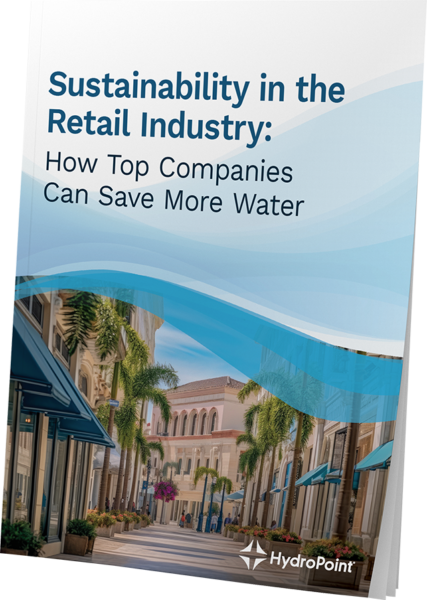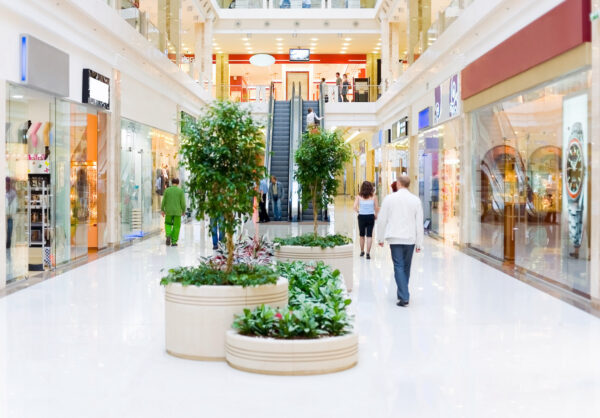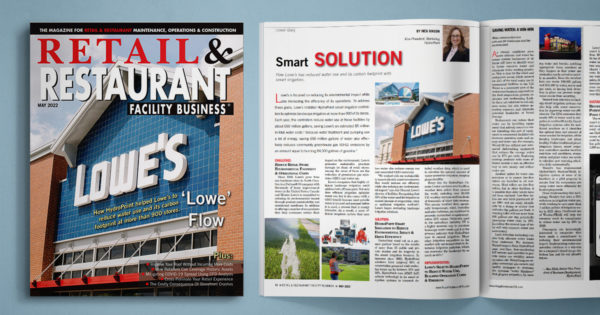
Water scarcity is a critical global issue impacting all sectors of the economy. In the United States, the hospitality industry is a major contributor to water usage, with hotels alone accounting for 15% of the total water consumed by commercial and institutional facilities.
To tackle the significant environmental impact of water consumption in their industry, hotels are turning to Smart Water Management systems in effort to both promote sustainability and save water costs.
By monitoring, controlling and optimizing water use with a Smart Water Management system that utilizes advanced technologies, hotels can realize a substantial reduction in water consumption, and substantial cost savings on water bills.
Ways Hotels Can Increase Water Efficiency
- Smart Water Meters utilize sensors to monitor water usage throughout the property. Hotels are immediately alerted when water leaks occur, and can identify inefficient fixtures and/or excessive water consumption patterns—all of which allows for timely repairs, ensures optimal consumption, and prevents water waste.
- Smart Irrigation Systems maintain attractive outdoor spaces and landscaping while minimizing water usage. Cloud-based smart irrigation controllers optimize watering schedules based on real-time weather data and site-specific plant water requirements—which eliminates water waste that comes with automated irrigation regardless of plant needs, and wasteful water runoff.
- Planting a Water-Smart Landscape with native plants that are adapted to local climate and require little to no irrigation greatly produces water efficiency.
- Dishwashers are major water consumers in hotel kitchens. Cleaning plates and dishes loaded into the dishwasher with a pre-rinse spray valve before washing uses 2 to 5 gallons a minute. Replacing an old pre-rinse spray valve with an EPA WaterSense labeled model will cut water usage to 1.28 gallons of water a minute—producing significant water cost savings on the hotel water bill.
- Recycled Grey Water allows hotels to re-use water from showers, sinks and laundry that has been filtered through an ultra-filtration membrane, and returned to the hotel for non-potable purposes, such as irrigation and flushing toilets. Grey Water recycling systems result in substantial cost savings on the hotel’s water bill by reducing dependency on freshwater sources.
- Water-Saving Fixtures are crucial in achieving water efficiency. Low-flow showerheads, faucets and low-flow toilets substantially decrease water consumption without compromising guest comfort.
Cost Savings
Smart Water Management systems are reshaping the hospitality industry, leading to improved operational efficiency and substantial cost savings. According to the Environmental Protection Agency (EPA), implementing water-saving technologies and water-efficient practices can save hotels up to 30% on water bills.
The hospitality industry is playing a vital role in mitigating global water scarcity by utilizing cutting edge technologies and transforming water efficiency in hotels. From Smart Meters to Smart Irrigation to advanced filtration systems, Smart Water management is revolutionizing the hospitality industry. And as a direct result, hotels are realizing significantly reduced water bills and long-term cost savings on their properties.

Guide: Sustainability in the Retail Industry
a comprehensive guide on how retail companies can enhance sustainability by implementing water-saving strategies.
Water Conservation is a Win-Win for Wendy’s
Since implementing this technology, Wendy’s has seen a 50% reduction in irrigation water use, while tracking to save more than one million gallons of irrigation water in 2021 alone.

Smart Water Management Helps Leading Retail Company Achieve ESG and Sustainability Goals
Discover how a leading retail company met its ESG sustainability goals by implementing smart water management strategies, resulting in significant water savings and improved efficiency.


